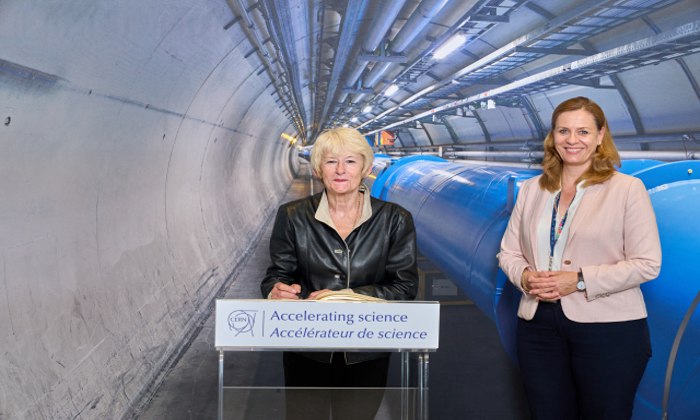President visits world's largest particle accelerator at CERN
06 Jul 2022
During her visit, President and Vice-Chancellor Professor Nancy Rothwell met some of our colleagues and students

The world’s most powerful particle accelerator is ready to start delivering proton collisions to experiments at a record-breaking energy level after three years of upgrade and maintenance work.
The Large Hadron Collider (LHC) at CERN, situated on the French-Swiss border near Geneva, is now equipped with new detector systems and enhanced data acquisition and computing structures which are now all operational.
Our scientists have long held leading roles in CERN through the ATLAS and LHCb projects. Our physicists continue to contribute to many ongoing CERN-related projects and over the weekend Professor Nancy Rothwell visited the site and met with some of the scientists involved.
Ten years since the discovery of the Higgs Boson particle was announced to the world, the LHC is moving ahead to the next stage of fundamental physics experimentation to help humanity’s understanding of the fundamental particles and forces that govern the universe. Using the upgraded machine, it is hoped that the LHC experiments will provide new insights into the dominance of matter over antimatter and the nature of dark matter.
Beam operators have now announced the beam is stable and ready to start taking data to be used for science. The LHC will now run around the clock for close to four years at the record energy of 13.6 trillion electronvolts (TeV).
Scientists will also be searching for candidates for dark matter and for other new phenomena, either through direct searches or – indirectly – through precise measurements of properties of known particles.
- You can read more about the pioneering work carried out by our scientists at CERN through our newsroom.
Image reproduced with permission, CERN
